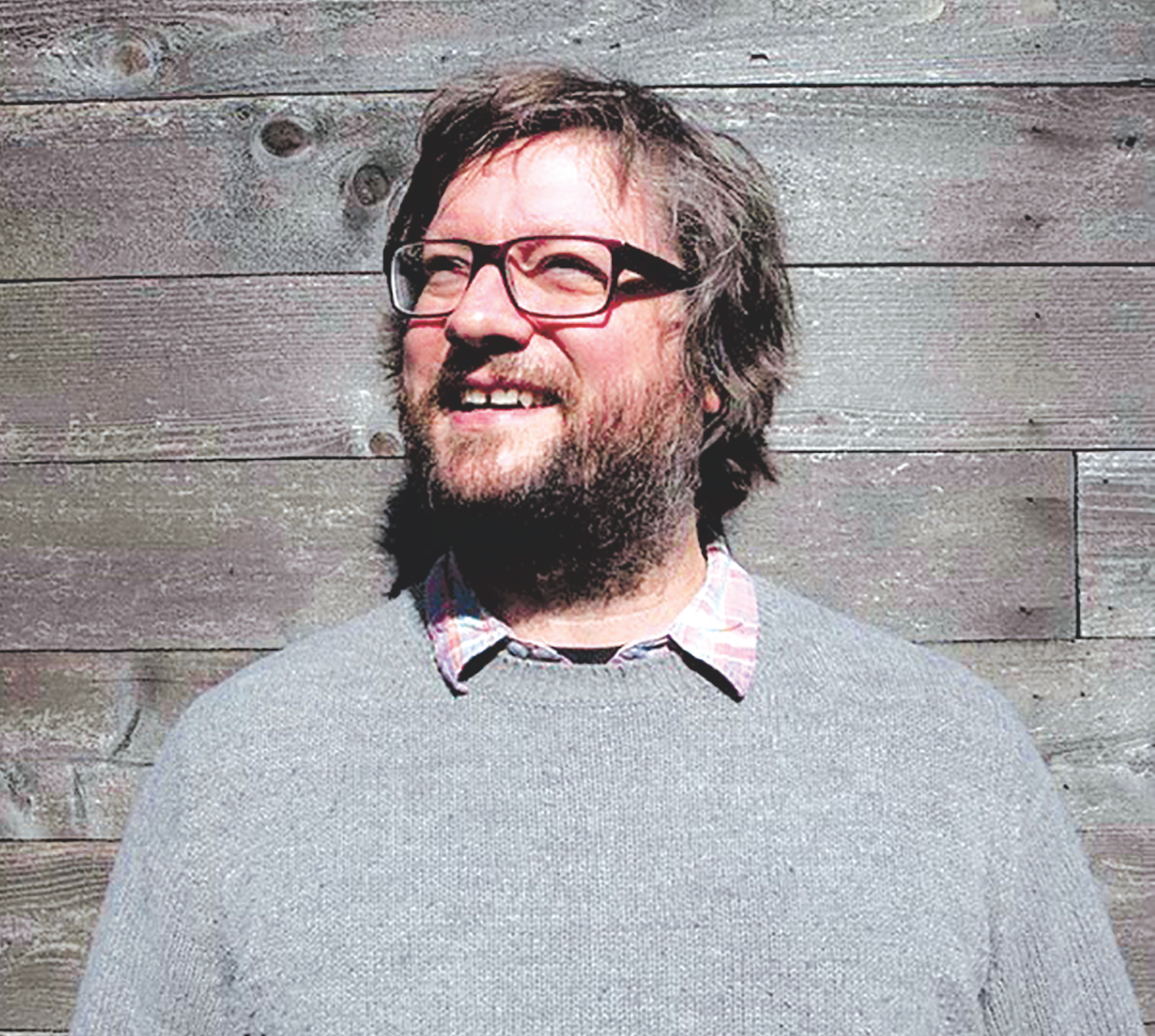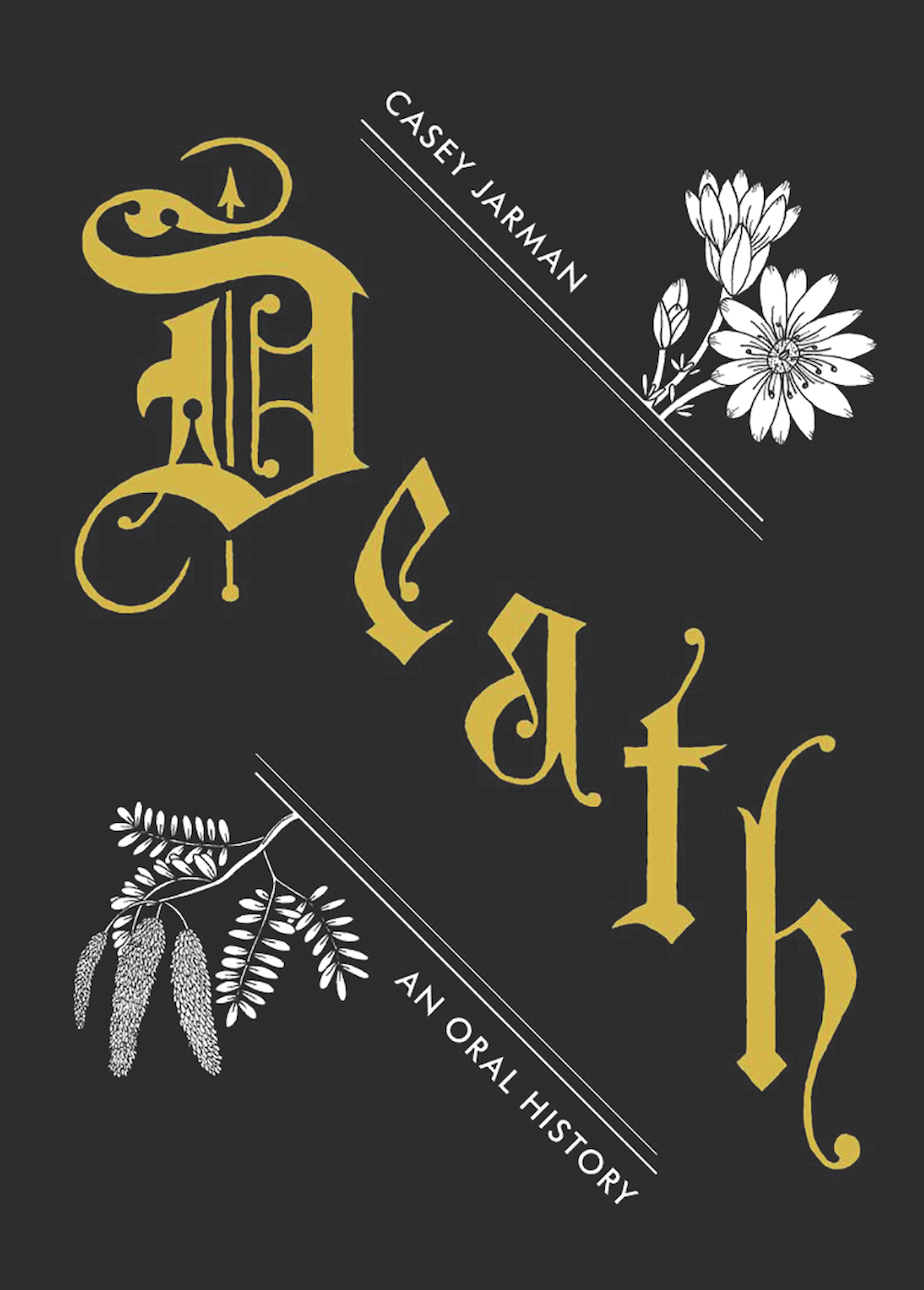Portland Author Casey Jarman


Death. It’s the metaphysical elephant in the room. This topic would be far too daunting for most writers to deal with as a debut, but Casey Jarman found the topic to be so curiously over-avoided that he dedicated a year of his life to investigating it.
Death: An Oral History was published in October and doesn’t at all read like a new-age self improvement book; rather it addresses the situation candidly and with enough ease and light-heartedness to be truly comforting. In it, Jarman picks some brilliant minds, like Art Spiegelman, the Pulitzer-Prize winning author of Maus, and modern philosopher Simon Critchley. Jarman also opens up mind-altering conversations with people who look quite differently at death, like psychedelic scientist Katherine MacLean. The most relatable interviews he conducts are those with his family and friends.
I met Jarman for a beer on a Saturday afternoon, and was soon entrenched in a discussion more anxiety-easing than any pill on the market.
ELEVEN: What inspired you to write about this subject, and then how has your perspective on the concept of death changed after interviewing all of these people?
Casey Jarman: I was just looking for something that I thought I could spend a year on without getting bored. There are so many endless directions you can take when talking about death, and I had a publisher that was willing to let me go out in any direction I wanted to go out in. They gave me some great ideas and leads on people, but for the most part, they allowed me to talk to people who inspired me. So it was a great exercise. If I got bored talking about the funeral industry then I could talk about something completely different, like art or music.
It changed my perspective in a lot of ways, but I think the biggest thing was having all these conversations with other people. Having it be an open, not-taboo thing allowed me to talk about it more in conversations with friends and family members and that’s been very rewarding to know that other people have the same anxieties and worries about it that I do. Having all of those external conversations has changed all of the internal conversations I was having with myself about it, where if it came up, I would just freak out and panic and not want to think about it. Now, I feel that I can have a playful kind of relationship with it internally. That’s the big thing for me, to be able to have the bandwidth to think about it and not have it make me want to go sleep in a hole somewhere.
ELEVEN: I had a similar reaction after reading your book. I especially connected with your conversations with your friend Anna Urquhart, whose mother had very recently died. Can you speak about that a bit?
CJ: I was in two minds about even asking her to talk about it. We’re pretty close. She’s a very honest and warm, wonderful person. She’s also, as I mentioned in the book, a very sarcastic, hilariously raw person. I thought that it could help somebody to hear a conversation with someone who is in the thick of trying to figure out what the fuck they were going to do now. Anna was about as realistic as you could possibly be. She realized her lack of any sort of faith or ritual around death … threw her into a tizzy. Not having that security of “it’s cool, she’s in heaven, so everything is good…” It was a huge existential crisis for her. I was real conflicted about even asking her, but she was totally open to the idea and I’m so grateful to her. I’ve read a lot of things from people a year out, two years out, five years out … I’ve never heard anybody say, this is what I’m going through right this minute.
ELEVEN: Simon Critchley was a fascinating subject because, first off, you don’t hear about many modern day philosophers. So is that actually his job title?
CJ: I think he is a little conflicted about it, but he did say, “I don’t really know what to call what I do, but I basically think and talk about death.” I think he’s OK with the philosopher title and I think he’s certainly done a lot in that capacity.
ELEVEN: My favorite line from him in that interview talks about the avoidance of the topic. “People are dying. We just don’t see it, we’ve chosen to devalue it in the name of longevity and youth. It means that we don’t cherish the connections that we have. We run after ones that we don’t have, and that makes us even more miserable.” It’s a life-affirming statement.
CJ: That was inspiring for me to talk to people — and who knows, he might have some spirituality that’s personal to him — like Holly Pruitt, locally, [who] talked a lot about ritual and tradition. Really, that’s what I was looking for. Because I think I’m too skeptical to adopt any kind of faith in my life at this point. It’s just not gonna happen. So I was looking for people who found some sort of comfort in a stark, realistic way of looking at life and death. People who can look at things and say, “I’m gonna die and I don’t know what’s next, or nothingness is next but I’m cool with it.” For me, that’s the best case scenario I can get with it: getting to the point where I can look at the uncertainty of death because I don’t think I’ll ever be … I don’t think anyone can ever look at it with any surety and say, “This is what happens.” I would feel like a fraud if I ever did that, because I’m just too small. We’re just fucking tiny insignificant beings.

ELEVEN: Why are psychedelics such a common thread in these studies? You discuss it with scientist Katherine MacLean and I didn’t realize it was so influential on Art Spiegelman. How did the conversation go there?
CJ: They both talked about it being a very helpful tool. For Art, how he got comfortable with the idea of death and his loss of the anxiety over it was taking acid and realizing that he was a part of the natural cycle. I don’t think that drugs are the only way of getting to that place. I know people that are completely sober and straight and who find other ways. I know biologists and scientists who just have that outlook on life. I think a big part of our disconnect from our mortality and from death is that we’re disconnected from nature. That’s why there’s so much stuff about green burial and about different methods of disposing of bodies. That in itself, I’m really not that interested in, but what I am interested in is the connection that we do or do not have to dying and to the people around us who are dying. I think that our disconnect with nature is a huge part of that puzzle.
ELEVEN: We kind of lie to ourselves about it, don’t we?
CJ: We live in a world of symbols. There’s an old band that I love called Kickball from Olympia. They have an album called Everything is a Miracle Nothing is a Miracle Everything Is. To me, living in the USA in 2016 is this constant experience in “I can have whatever I want whenever I want, so why would I spend any time on thinking about death? Why would I spend any time thinking about hard shit … when I can just play video games at my house for five hours, or I can go get drunk on any corner?” There’s no consumer influence that’s telling you to think deeply about your life or to think about mortality. Nothing about capitalism is saying to you, “Hey you should just chill out for a while and meditate on death.” Because that can’t make any money for anyone. You literally have to be in a different segment of society or disconnect yourself from society to get an appreciation for stuff like this, really.
ELEVEN: Until someone who is close to you dies and then it hits you like a ton of bricks.
CJ: Then it shatters everything. That’s what comes up over and over again. There’s this very real phenomenon that we’re all gonna deal with that, for whatever reason, none of us want to plan for or think about, or develop a way of living with. It’s just avoidance. For me, that was starting to drive me completely crazy. That’s why the book is the book, because avoidance was making me nuts and it was not working. Even for someone who was not experiencing loss personally, something was weighing very heavily on my mind. I had so many mundane conversations that I felt like screaming in the middle of the conversation. Like, this is stupid. We’re all gonna die, why aren’t we talking about this?»
– Scott McHale



